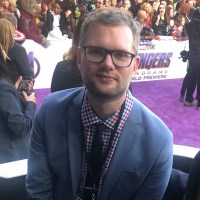Applying to colleges is hard enough, but imagine doing so while a bunch of strangers with cameras follow you around as you juggle applications, homework, and other uniquely teenage activities. That’s what some students faced in 2017 when filmmaker Debbie Lum shot her documentary, Try Harder!, to track the sometimes arduous, always compelling journey of high school seniors as they prepare to attend college.
By focusing on San Fransisco’s Lowell High School, which has a predominantly Asian American student body, Lum also gets to explore issues of class, culture, and race that are unique to the Asian American community. Lum recently chatted with Digital Trends about the challenges of filming try harder! and what she would have done differently if she filmed the documentary today.
Note: This interview has been edited for length and clarity.

Digital Trends: What was the genesis for Try Harder!?
Debbie Lum: I’m a mom, and originally I was looking at the stereotype of the tiger mom who’s ruthless about academic achievement. I watched my sister go through it with her kids and Lowell High School was just going to be like one chapter in that story. Once we met them, we were like, these guys are regular teenagers full of angst going through just navigating a ridiculous set of circumstances. And we felt this palpable sense that they needed to have their story told.
Was there anyone that you wanted to try to interview that you couldn’t?
You have to hedge your bets with a story like this because the outcome has a lot to do with the actual film and you can’t control the outcome. And so we filmed several more students than we included in the documentary. Some of their storylines came out because they didn’t quite fit and others were discarded because it got too hard during the middle of filming for some kids to continue. As a result, we lost kids that we really wanted to film. But for the most part, we were really lucky. We felt like the community opened its doors to us.
I want to get into the issues that the documentary brings up like culture and race, particularly with Rachael. Was that intentional on your part to include that in your documentary? Did you want to speak to that?
Well, certainly. Rachael was one of the few Black students in her class At the time we filmed, there were less than 2% of the students at Lowell who were Black. I myself grew up in the Midwest and I was kind of like Rachael. I was in the less than 2% crowd, so I identified with her. I was also very curious to know what it would be like at a majority Asian American high school [like Lowell] and that was one of the things that were interesting to me. It was so different from what we normally see depicted in film.
We were looking for kids who would make good characters and we heard a lot of good things about her. We asked her about what it was like to be different and about race and college admissions. It was kind of impossible not to talk about race. It’s the first thing that they have to declare on their college admissions applications, so they’re all kind of thinking about it.
If you’re Black, there’s a language that you’ve had been given to speak about race. We’re not doing it very successfully in this country, but we are trying to talk about race from a Black and white point of view. Most of the kids that we talked to who were Asian didn’t have that language to talk about race, and we would ask them about that. And a lot of times they just didn’t really want to say [anything] directly.
With the rise of Asian hate crimes that happened during the pandemic, Asian Americans had to deal head-on with violence. And that growing consciousness about it is I think a very, very new thing. The Asian American kids that we talked to wouldn’t be able to talk about the way that they were discriminated against, even though it happened all the time. They would tell me, but not with cameras [on]. They literally would say, “Can you stop [filming]?”

If you had made this documentary now, would anti-Asian hate and discrimination be more in the foreground than it was when you originally shot Try Harder!?
I’m sure it would be. My producing partner, Spencer Nakasako, grew up in San Francisco and he went through the public school system. He could tell you firsthand the things that happened to him. If you look at Asian American students from kindergarten through eighth grade, the horrible things that they’ve experienced on the bus are something they carry with them as they go to high school.
There’s actually data on it. Of all ethnic groups, Asian Americans are the most bullied in a school setting. Asian-Americans are also the least vocal about being bullied, so it’s probably underreported.
What do you want people to take away from your documentary after they’ve watched it?
Well, for me, it’s always about the individual stories. I’m always trying to show the human stories that we go through, the narratives, the complexities of all that. And it is a journey trying to get into college. Most kids, parents, and families start out on the one side looking up at this massive wall they have to climb with utter trepidation and anxiety. But once they get to the other side, whatever the outcome is, it’s better to get there. I think it really it’s very helpful to take people through that journey, even if it is hard.
Try Harder! is available to stream on digital and on demand.



